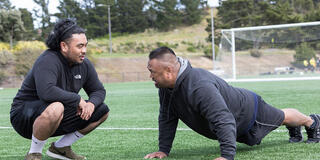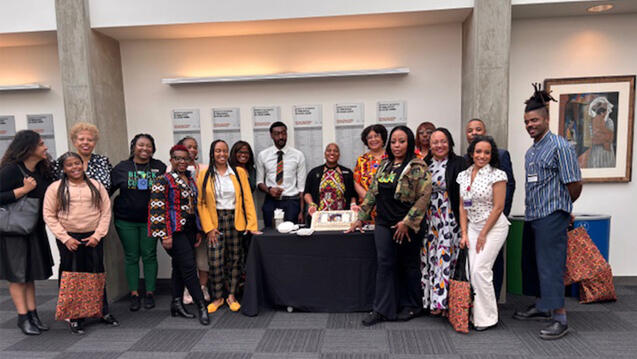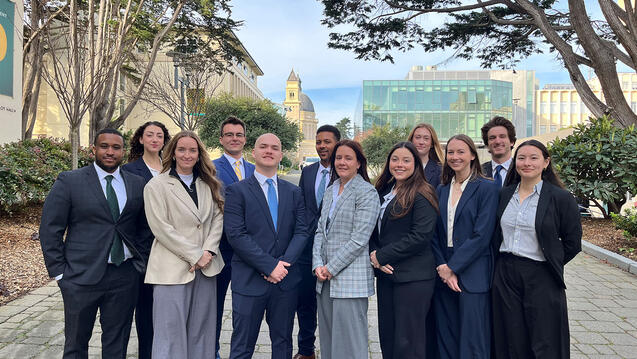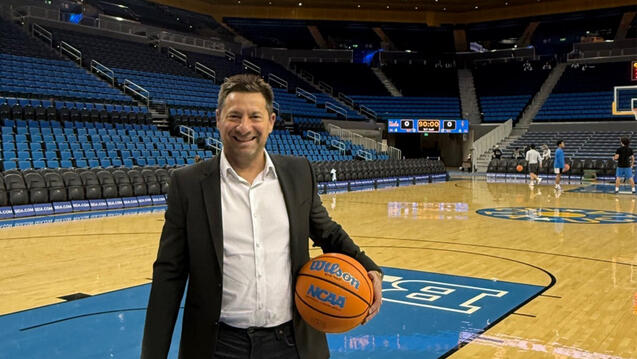Worried About His Health

Andre Pautin ’18 was worried about his dad’s health. In recent years, his 46-year-old father had given up exercising, was overweight, and had developed gout, which is one of several diseases that run in the family.
So when Pautin, a kinesiology major, was assigned to mentor someone with a sedentary lifestyle and to motivate them to exercise more for his sports and exercise psychology class, he knew just who to ask.
His dad, Nate Pautin, agreed — but more to support his son's education than out of a desire to get fit, Pautin says.
“The first thing I did was gather information about his daily routine. What I found out was that he was mostly inactive and had no intention of starting an exercise program," says Pautin, who explained that his dad’s job as a security guard at a hotel means he mostly sits behind video camera monitors all day.
Breakthrough
Each week for six weeks, Pautin talked with his dad about his health and how, if it declined, it would also affect the lives of those around him. They talked about the physical and mental benefits of exercising, they discussed his dad's potential as a role model to others in the family for living healthier, and his dad verbally committed to start exercising more — all strategies for working with clients that Pautin learned in class. Around the fourth week there was a breakthrough.
“I compared his health status to my grandfather’s, who has a history of high blood pressure, a number of heart attacks, and gout, and asked my dad if he wanted to go down the same road,” says Pautin, who reminded his dad of family events his grandfather had missed, frequent hospitalizations his grandfather had endured, and that his grandfather could no longer even walk his dogs.
“My dad went from thinking that this was just help for my project to thinking about his health seriously for himself,” Pautin says.
Today, Nate plays baseball every Sunday, like he did in high school and college. He also hits the gym from time to time and has become more health conscious in his diet by cutting down on red meats and sugar.
Future career
“Most people won't appreciate how much change took place with Andre's father, but he went from not really even thinking about exercise or his overall health to playing baseball every Sunday,” says Professor Diana Lattimore, who teaches the sports and exercise psychology class. “Bringing about a lifestyle change takes months, even years. So, for Andre to get his dad to not only think more about exercise and his health, but also move all the way into acting on it is huge progress.”
In their careers, many kinesiology grads will need to motivate patients to be healthier, more active, or adhere to home exercises, says Lattimore.
"This assignment prepares them for challenges in the real world with a difficult patient who has no motivation to do what it takes to get healthy,” she says.
Know someone with a powerful USF story? Let us know! usfnews@usfca.edu / Twitter @usfca


